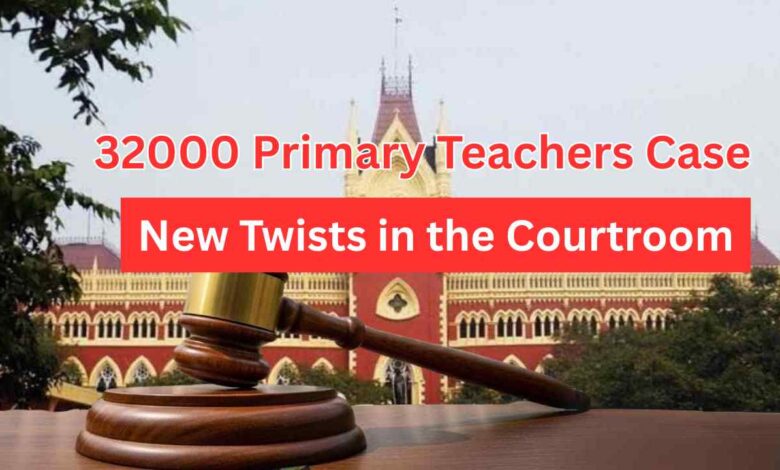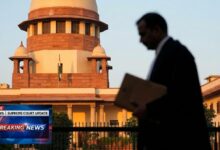32000 Teacher Recruitment Case: New Twists in the Courtroom Battle in Today’s Hearing

32000 Teacher Recruitment Case: The hearing on the case for the cancellation of 32,000 teacher posts is ongoing in the Calcutta High Court, which will determine the future of thousands of teachers in West Bengal. In this blog post, we will discuss the important aspects of this case’s hearing and its potential impact in detail.
Main Arguments of the Hearing
In the case hearing, Anindya Mitra, the lawyer for the petitioner teachers, argued strongly for about two hours. His main arguments were:
- Questioning the Authenticity of Documents: He questioned the authenticity of the spiral-bound documents submitted by the petitioners, which showed that candidates with lower academic scores were given higher marks in the aptitude test. These documents were not submitted with an affidavit and were presented in the middle of the hearing, which raises doubts about their authenticity.
- Allegations of Corruption: According to the lawyer, the allegations of corruption in the 2014 Primary Teacher Eligibility Test (TET) have no connection with the 2016 recruitment process. He also added that the CBI has not yet filed any charge sheet regarding the 2016 recruitment process.
- Definition of “Gross Illegality”: He also questioned the specific definition of “gross illegality” mentioned in the single judge’s verdict. He commented that getting higher marks in the aptitude test despite having a low academic score cannot be called corruption.
The Board’s Statement
The lawyer for the West Bengal Board of Primary Education also presented some important information during the hearing:
- Number of Appointments: In the 2016 recruitment process, 42,949 people were appointed, not 32,000. Therefore, there is no question of “excess recruitment.”
- Absence of a Merit List: No merit list was published, and the single judge’s order to publish a panel was not part of the original writ petition.
- Selection Process: This writ petition was filed five years after the completion of the selection process, which raises questions about the validity of the case.
Court’s Observations and Next Steps
The court has made some important observations in this case and has given some directions for the next steps:
Get Instant News Updates!
Join on Telegram- Natural Justice: The court believes that before canceling the jobs of 32,000 teachers, their statements should have been heard, which is contrary to natural justice.
- Aptitude Test: The petitioners had verbally claimed that no aptitude test was conducted, but the court is reluctant to give importance to verbal evidence.
- Next Hearing: The next hearing of the case has been scheduled for July 7, 2025.
This case is going to be a significant milestone for the education system of West Bengal. The verdict of this case will not only determine the future of 32,000 teachers but will also send a clear message about the transparency and accountability of the state’s recruitment process. We should all keep an eye on this case, as its impact can be far-reaching.

